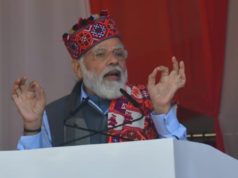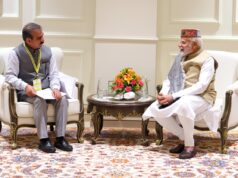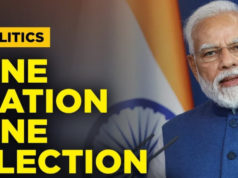New Delhi: In a major development on Friday, Prime Minister Narendra Modi has announced to withdraw the three farm laws.
PM Modi has announced to complete the constitutional process in the upcoming Winter Session of Parliament.
Greeting the nation in an address on Friday on the occasion of Gurpurab, the prime minister said
“Today I have come to tell you, the whole country, that we have decided to withdraw all three agricultural laws. In the Parliament session starting later this month, we will complete the constitutional process to repeal these three agricultural laws”
The PM claimed of giving the highest priority to agriculture development and farmer welfare since he was voted into power.
PM Modi, in his address also defended the concept behind the farm laws, however, he said the government couldn’t convince some farmers of the value of the farm laws and, therefore, the decision to repeal the laws was taken.
“The objective of the three farm laws was that the farmers of the country, especially small farmers should be strengthened, they should get the right price for their produce and maximum options to sell the produce,” PM Modi said and further added
“These laws were brought for the welfare of farmers, specially small farmers, in the interest of the agriculture sector, for a bright future of ‘gaanv-gareeb’ – village-poor, with full integrity, clear conscience and dedication towards farmers.”
Ruing failing to impress agitating farmers about the benefits of the reform laws, Modi said
“Such a sacred thing, absolutely pure, a matter of farmers’ interest, we could not explain to some farmers despite our efforts. Agricultural economists, scientists, progressive farmers also tried their best to make them understand the importance of agricultural laws”
PM Modi also announced the formation of a committee to promote zero budgeting-based agriculture, to change crop patterns as per the changing needs of the country and to make MSP more effective and transparent. The Committee will have representatives of the central government, state governments, farmers, agricultural scientists, and agricultural economists.













